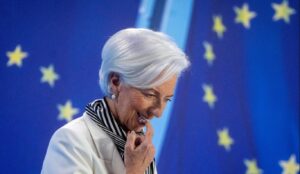BTC trading has the Nigerian government concerned
2 min readTL;DR Breakdown
• BTC trading has increased 400 percent in Nigeria since 2020.
• The Nigerian naira devaluation gives power to decentralized currencies.
According to the crypto exchange BTC Paxful, the Federal Republic of Nigeria is the second country with the most BTC trading transactions. The United States ranks first in crypto transactions. But Nigeria has marked a milestone with $2.4bn for the second quarter.
The crypto transactions in Nigeria will exceed statistics. Other factors such as political restrictions, inflation, and asset control have favored the cryptocurrency market in the country. By February, national authorities prevented regulated banks from accepting crypto transactions.
In the last days of July, the government included a new project to create its centralized crypto. However, this regulatory plan has been unsuccessful so far.
BTC trading takes off in Nigeria

Although the Nigerian authorities have attempted to discourage BTC trading, they have also inadvertently caused it to become more popular. Nigeria serves as an example for all the cryptocurrency regulators in the world looking to limit transactions. However, Rishi Sunak, Great Britain’s Chancellor, has tried to create a centralized crypto under the name “Britcoin.”
Regulatory agencies in the European Union have flagged projects so that crypto transactions can be traced. These measures against crypto are motivated by the increase in money laundering with these virtual currencies. China has prevented cryptocurrency mining for a few months.
However, all these restrictions have not been present in Nigeria, where it is still easy to adopt cryptocurrencies. On average, BTC trading in Nigeria has increased by 400 percent compared to last year.
Authorities impose regulation on May for crypto transfers
In other countries such as Ghana, Turkey, and Egypt, attempts have been made to regularize cryptocurrencies on a large scale. However, their plans have been foiled by significant disagreement among citizens.
Something that strengthens BTC trading in Nigeria is that most of its population is young and encouraged to use the new technology. This happens because many young people are looking for a business to get out of a poor economy. However, pyramid projects have come to light which endangers the country’s crypto market.
The crypto market turns out to be a constant activity for many users. Crypto shipments to Nigeria from overseas workers surpassed $17bn in 2020. These crypto transactions are evading the devaluation of the local Nigerian currency that has lost its value since 2016.
BTC trading has also served as a protection for those government prohibitions present in the country. Everything hints that the crypto market will continue to boom in Nigeria, and no one may stop it. However, new traders should be wary of crypto companies that promise excellent investments because they can be scams.






